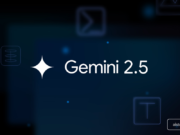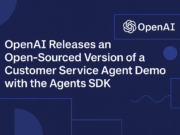From the rise of 3D graphics to the explosion of cellular gaming, technological progress has all the time pushed the gaming trade ahead.
AI marks the newest chapter within the trade’s improvement, a chapter that presents each imminent challenges and longer-term existential questions.
A current survey by the Recreation Builders Convention discovered that 84% of builders are considerably or very involved in regards to the ethics of generative AI, from fears of job displacement to points like copyright infringement and the danger of AI techniques scraping recreation information with out consent.
For these on the entrance strains of recreation improvement, AI job displacement is already accelerating. In 2023, 10,500 recreation builders misplaced their jobs throughout over 30 studios. An additional 5,900 had been reported in January 2024.
“I’m very conscious that I may get up tomorrow and my job might be gone,” confesses Jess Hyland, a online game artist with 15 years of expertise beneath her belt. Hyland advised the BBC that she’s already heard of colleagues shedding gigs due to AI.
At Hong Kong-based Gala Know-how, which creates and distributes cellular video games, CEO Jia Xiaodong confessed to Bloomberg Information, “Principally each week, we really feel that we’re going to be eradicated.”
The corporate has entered disaster mode, freezing non-AI initiatives, mandating machine studying crash programs and providing $7,000 bonuses for individuals who provide you with revolutionary AI concepts.
Within the US, gaming giants like Digital Arts and Ubisoft are equally pouring thousands and thousands into AI analysis, at the same time as they climate waves of layoffs and restructuring.
There’s a way of inevitability that this development will solely speed up. Masaaki Fukuda, a Sony’s PlayStation division veteran who now serves as vp at Japan’s largest AI startup, defined, “Nothing can reverse, cease, or sluggish the present AI development.”
When machines dream of electrical sheep
For many years, video video games have been the product of intensely collaborative human effort, melding the talents of artists, writers, designers, and programmers into immersive, interactive experiences.
Now that AI techniques can generate ranges, worlds, and even complete video games from easy textual content prompts, the dynamics of authorship are being questioned.
Think about GameNGen, an AI mannequin developed by Google and Tokyo College that generates absolutely playable ranges for first-person shooters in real-time, making them almost indistinguishable from these crafted by human designers.
Or take DeepMind’s Genie, a basis mannequin that may generate interactive 2D environments from tough sketches or transient descriptions, mixing parts from current video games to create totally new worlds with distinct logic and aesthetics.
These examples, each from 2024, present the path of journey for AI in recreation improvement, a glimpse of what we would anticipate to see commercially in a couple of years.
Nonetheless, change is already very a lot within the pipeline. AI instruments like Unity’s Muse are actively reshaping recreation design workflows at the moment, automating asset creation, animation, and environmental constructing.
This stage of AI integration is already making it attainable for builders to perform in hours what as soon as took days. The intention is to take away the drudgery of repetitive duties whereas leaving inventive management primarily in human palms.
As Marcus Holmström, CEO of recreation improvement studio The Gang, defined to MIT, “As a substitute of sitting and doing it by hand, now you’ll be able to take a look at completely different approaches.”
“For instance, when you’re going to construct a mountain, you are able to do several types of mountains, and on the fly, you’ll be able to change it. Then we’d tweak it and repair it manually so it matches. It’s going to save lots of plenty of time.”
For some within the trade, these instruments and others herald a brand new period of democratized creation. “AI is the sport changer I’ve been ready for,” Yuta Hanazawa, a 25-year trade veteran who lately based an AI recreation artwork firm, advised Fortune.
Hanazawa believes that AI will “revitalize your complete trade ” by liberating builders from the drudgery of asset creation, enabling a newfound give attention to revolutionary gameplay and storytelling.
Nonetheless, others concern that the rise of generative AI threatens to scale back human artists to mere machine operators, endlessly fine-tuning and debugging its output.
“The stuff that AI generates, you turn out to be the particular person whose job is fixing it,” Hyland stated. “It’s not why I received into making video games.”
The double-edged sword of democratization
For AI evangelists, one of many expertise’s most tantalizing guarantees is the unconventional democratization of recreation creation.
They envision a future through which anybody with a spark of creativeness can conjure their dream recreation with a couple of easy prompts, the place the road between participant and creator blurs into irrelevance.
However for every particular person intoxicated by the prospect of AI-powered artistic freedom, there’s not less than one skeptic.
Chris Knowles, a veteran recreation developer and founding father of the indie studio Sidequest Ninja, factors to cloned video games which can be already plaguing app shops and on-line marketplaces.
“Something that makes the clone studios’ enterprise mannequin even cheaper and faster makes the troublesome job of operating a financially sustainable indie studio even more durable,” Knowles cautions.
Knowles and plenty of others concern that the arrival of AI-assisted recreation era will solely exacerbate the issue, flooding the market with predominantly spinoff, low-effort content material.
This mirrors what’s taking place elsewhere within the artistic arts. For instance, AI-generated music is making its manner onto Spotify, and AI-generated artwork is displacing expert illustrators and designers.
There’s additionally the danger of artistic homogenization. If each developer is drawing from the identical small pool of AI fashions and related datasets, will the outcome be a gaming panorama that feels more and more generic and interchangeable?
Will the idiosyncrasies and pleased accidents that always outline actually memorable video games be misplaced within the pursuit of algorithmic optimization?
As screenwriter Melissa Rundle described of the historic Hollywood actor’s strike in 2023, “AI doesn’t have childhood trauma. As writers, we’re creating tales that contact folks and oftentimes digging deep into our soul – that is storytelling at its most sacred and may by no means be robbed by a machine.”
AI gaming’s moral minefields
AI’s function in recreation improvement is blurring the road between the digital and the true – pushing gaming nearer to its long-standing purpose of making actually immersive, lifelike experiences.
Many video games already enable gamers to customise their digital personas. With AI-powered instruments able to producing hyper-realistic, photo-quality photographs, the potential for gamers to create avatars that uncannily resemble actual people – after which use these avatars for exploitative or abusive functions – is disturbingly excessive.
The constructing blocks for these eventualities have already been laid. For instance, the current case of Spanish schoolchildren utilizing AI ‘video games’ to generate nude photographs of their classmates illustrates how simply these instruments will be weaponized, particularly towards weak populations like girls and minors.
AI ‘video games’ able to producing specific or abusive imagery are rife on the Apple App Retailer and Google Play, and age limits largely ineffective.
Transpose this identical dynamic into the context of extremely reasonable, detailed gaming environments, and the potential for hurt is gigantic.
Additional, moderating AI’s performance to forestall this type of abuse or manipulation is exceptionally difficult, if not unattainable. All AI fashions, regardless of how refined, are weak to jailbreaking. This entails discovering loopholes or weaknesses carefully techniques to generate content material that’s purported to be restricted.
Filters designed to dam specific content material usually turn out to be the very goal for manipulation by gamers who push AI techniques to their limits, creating content material that breaks moral boundaries.
The problem is making certain AI doesn’t undermine the very communities it goals to reinforce – each amongst avid gamers and throughout wider society.
Developers, studios, and many others., can’t simply push the boundaries of what AI can do but in addition perceive the place AI stops being a instrument and begins taking up our lives – our psychological colleges – our tradition, our creativity, our selves.
Ultimately, the dialog round AI in gaming isn’t about whether or not it is going to occur – it already has. The main target must shift in direction of making certain that AI enhances slightly than erases human creativity whereas stopping types of hurt and misuse.


















![Diablo 4 Mod Apk Newest Model [Unlimited Excitement]](https://digibytetoday.com/wp-content/uploads/2025/06/1750344127_1-final-180x135.jpg)















